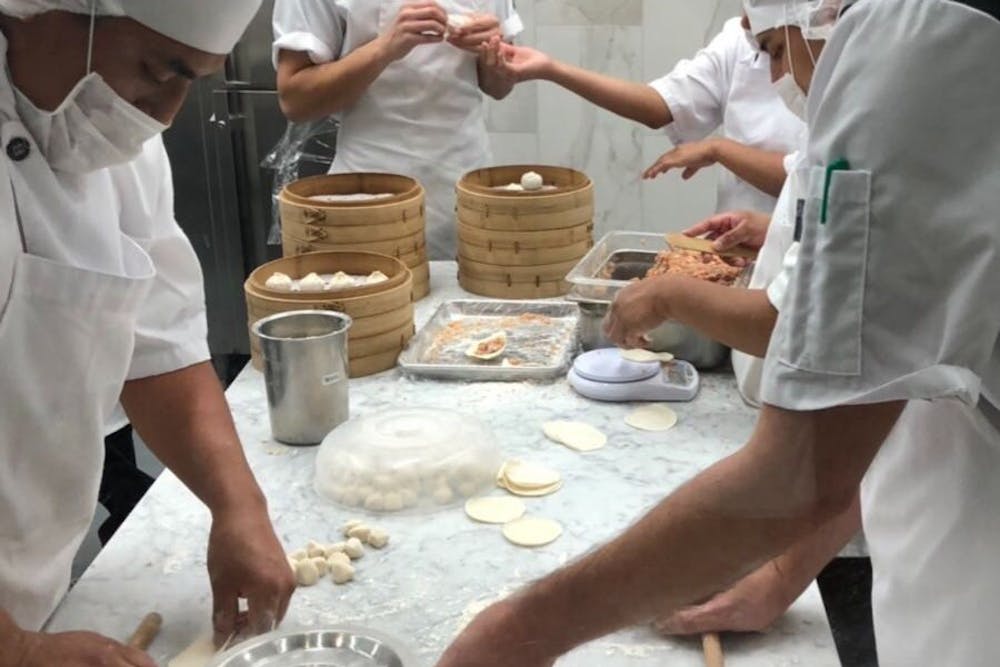Solving the problem of loneliness creates a paradox.
In order to be considered lonely, it would follow that you would have no one to keep you company. Finding a respite from that loneliness and building togetherness, however, requires people, and if you are lonely that’s a commodity you simply don’t have.
In the midst of a gap year I spent in Los Angeles, I was feeling intensely and painfully alone and disconnected.
I had left the entirety of my life to move to a new state, and my inexperienced personhood found tremendous difficulty in creating new connections. To describe these events in such a light, though, would suggest that I was unhappy at the prospect of leaving my home.
Quite the contrary, the unhappiness that faced me at the current conjuncture in my life was so real and infinite that starting anew was the only option.
A few months into my new adventure I started a job at a Taiwanese restaurant called Din Tai Fung. Up until that point, I had never placed much thought into the idea of making friends. It seemed to happen out of convenience and when the need arose, it felt like an on-call fairy godmother.
Where I was now was alone. I didn’t feel as though I had no one — I had difficulty in proving I had anyone. My life had changed so dramatically in the half-year prior, and any faded portrait of a social support system was mostly gone.
The solution from a western perspective would be to put myself out there: to quickly and fully delve into the pursuit of making friends. That simple solution would never solve the cause of my loneliness, but rather it would only provide a temporary and self-centered form of relief, inevitably leading to more social isolation.
The ideals of the working environment and the people I was around changed my perspective. My closest coworker’s more eastern ideals, based on a pure focus of others, made me think differently. It made me reanalyze the dominant western viewpoint, and it challenged the way I viewed being lonely.
The loneliness I was facing couldn’t be fixed by talking to a friend. The solution was found in removing the component of the self entirely.
Changing my attitudes toward reflecting more humility and modesty provided a simple solution to the social isolation problem. By removing myself and my individual needs from my perspective of what’s important, I would consequently have no need for the company of others.
The statement in and of itself sounds so reclusive, but I would argue the direct opposite. Often my extraversion led to focusing conversations and social interactions toward myself, and in turn, took away from the other person.
Only by letting go of my attachment to others, my social dependencies and my constant desire to be around people was I fully able to look clearly at the person in front of me — their eyes, their smile, their beauty and their past.
The mere fact that social interactions beforehand were viewed from a point of personal benefit would mean that on a fundamental level I wasn’t interested in the other person’s viewpoint. The valued product of any interaction would be my personal benefit; I would have to turn this around if I were to truly help anyone.
The development of this mindset now leaves me confused in observing how others interact. We often are so unknowingly hurting on the inside, our first solution is to solve our pain by relying on the people around us. We often do this in such a convoluted roundabout way that we never alleviate our own pain, cause pain to others and perpetuate the cycle of pain in the process.
Whether or not we choose to acknowledge it, we all have our problems, and the pain they cause us has tremendous power over our actions. I know a world without pain is impossible and wouldn’t be beneficial; however, I imagine if we put our collective efforts into fixing the greater problems affecting the world — rather than ourselves — the world would inevitably begin to heal.
So try to let go a little. Or move to another state and work in a Taiwanese restaurant for a while and see where it takes you.
Reach the reporter at cbeal4@asu.edu and follow @beal_camden on Twitter.
Like The State Press on Facebook and follow @statepress on Twitter.




